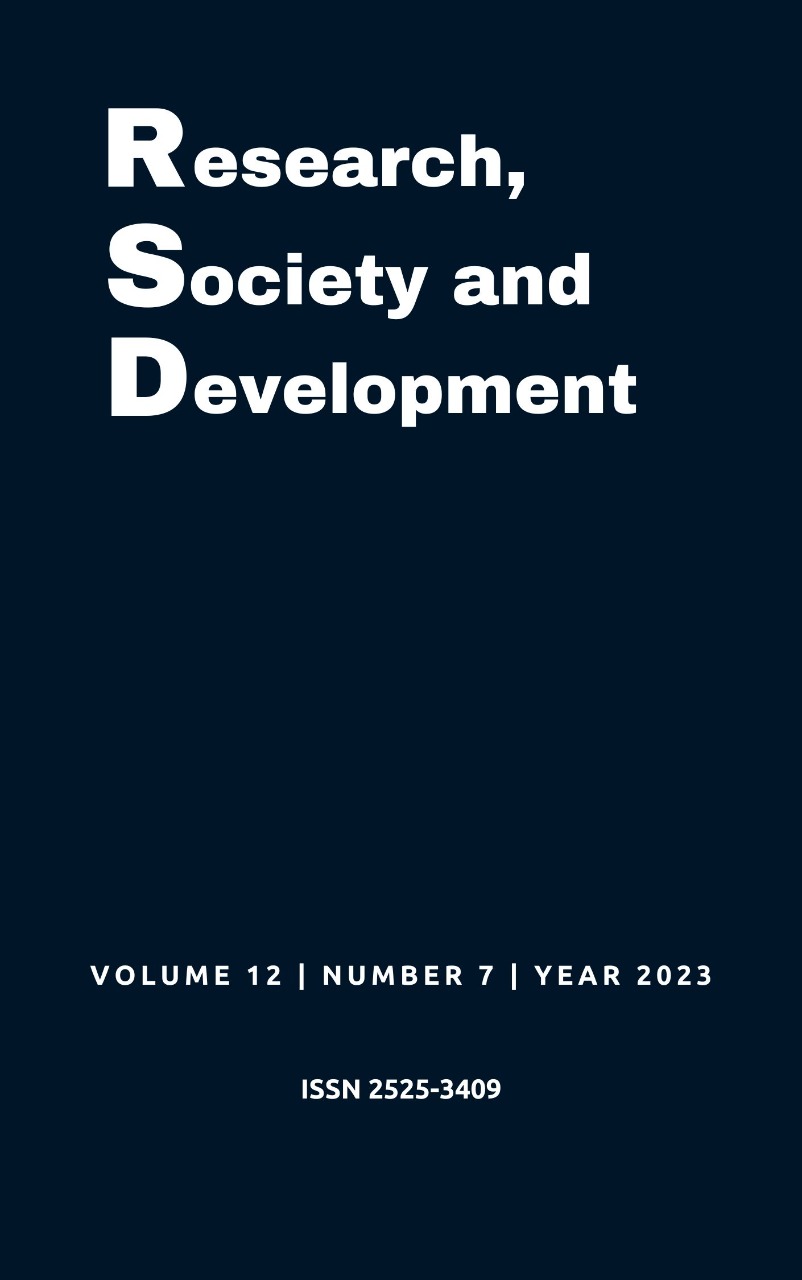Evaluation as a process of teacher (trans)formation
DOI:
https://doi.org/10.33448/rsd-v12i7.42522Keywords:
Educational assessment, Teacher education, Learning.Abstract
This study explores the importance of learning assessment in teacher education and its contribution to the educational transformation process. In this sense, large-scale assessments are seen as guiding public policies, using the information obtained to improve institutions. However, it should be recognized that assessment is not limited to objective or subjective aspects. The objective of this study was to investigate the role of learning assessment in the context of teacher education. To this end, a theoretical discussion based on a literature review was conducted. The findings indicate that in order to improve teaching practice, it is necessary to establish robust mechanisms for teacher education. Additionally, it is crucial to explore a broad and diversified approach to assessment, considering both quantitative results and qualitative aspects of the educational process. Therefore, there is a need to use assessment results for decision-making and to develop effective educational policies. The importance of reflective and critical assessment is emphasized to enhance the effectiveness of assessment as a tool for improving the educational process, aiming for a fair and inclusive assessment system that promotes teachers' professional development. Ongoing dialogue among educators, administrators, and other stakeholders in the field of education is essential to achieve quality education that meets the needs of contemporary society.
References
Brito, L. S. (2008). O Exame Nacional de Desempenho dos Estudantes e a avaliação da educação superior brasileira. Revista Brasileira de Política e Administração da Educação, 24(2), 207-220.
Carvalho, L. M. (2014). Avaliação em larga escala e políticas educacionais: implicações para a formação de professores. Revista Brasileira de Estudos Pedagógicos, 95(239), 307-329.
Furlan, R. C. (2007). A avaliação no processo de formação do professor. In R. C. Furlan & R. D. Pileggi (Eds.), Avaliação e formação de professores: um diálogo necessário (pp. 43-62). Editora Unijuí.
Hoffmann, J. (2001). Avaliar para promover: as setas do caminho. Mediação.
Hoffmann, J. (2005). Avaliação mediadora: uma prática em construção da pré-escola à universidade. Mediação.
Luckesi, C. (2009). Avaliação da aprendizagem escolar. Cortez Editora.
Perrenoud, P. (1999). Construir competências desde a escola. Artmed.
Perrenoud, P. (1999). Ensinar: agir na urgência, decidir na incerteza. Artmed.
Pontes Junior, J. A. de F., Medeiros Filho, A. E. C., & Sousa, L. A. (2022). Avaliação da formação profissional: elementos conceituais para uma abordagem metodológica. Conhecer: Debate Entre O Público E O Privado, 12(29), 156–167.
Ribeiro, A. P. de M. (2011). A avaliação diagnóstica da alfabetização norteando os caminhos para o êxito do processo de alfabetizar crianças. (Tese de Doutorado). Universidade Federal do Ceará, Fortaleza.
Rother, E. T. (2007). Revisão sistemática X revisão narrativa. Acta Paulista De Enfermagem, 20(2), v–vi.
Silva Neta, M. de L. da, Magalhães Junior, A. G., & Bessa, M. J. C. (2019). Práticas avaliativas: uma pesquisa nos cursos de formação docente. Revista Eletrônica de Educação, 13(3), 1156-1169.
Soares, J. R. (2011). Atividade docente e subjetividade: sentidos e significados constituídos pelo professor acerca da participação dos alunos em atividades de sala de aula. (Tese de Doutorado em Educação: Psicologia da Educação). Pontifícia Universidade Católica de São Paulo - PUC-SP, São Paulo.Vianna, C. E. (2000). A avaliação em questão. Cadernos de Pesquisa, 110, 157-175.
Vianna, H. M. C. P. (1992). A avaliação no curso de formação do professor. Cadernos de Pesquisa, (82), 53-59.
Vianna, H. M. C. P. (2000). Reflexões sobre a avaliação educacional. In J. Hoffman & A. C. Sant'Anna (Eds.), Avaliação
Downloads
Published
Issue
Section
License
Copyright (c) 2023 Aurineide Amaro de Sousa; Evandro Nogueira de Oliveira

This work is licensed under a Creative Commons Attribution 4.0 International License.
Authors who publish with this journal agree to the following terms:
1) Authors retain copyright and grant the journal right of first publication with the work simultaneously licensed under a Creative Commons Attribution License that allows others to share the work with an acknowledgement of the work's authorship and initial publication in this journal.
2) Authors are able to enter into separate, additional contractual arrangements for the non-exclusive distribution of the journal's published version of the work (e.g., post it to an institutional repository or publish it in a book), with an acknowledgement of its initial publication in this journal.
3) Authors are permitted and encouraged to post their work online (e.g., in institutional repositories or on their website) prior to and during the submission process, as it can lead to productive exchanges, as well as earlier and greater citation of published work.


